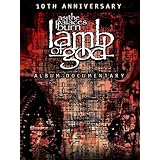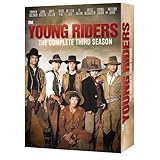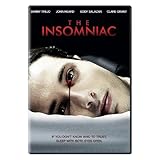
Warner Archive's recent 6-disc 23-episode complete series DVD release of the 1972-1973 series "SEARCH" earns Archive the title Champ of TV Land. The good folks at Archive coining the very apt phrase "spy-fi" in reference to the series is icing on the cake.
This release is exciting as well because it provides sofa spuds a chance to own the complete collection of this show more than two years after Archive's August 2011 DVD release of the February 1972 made-for-TV pilot "Probe." Unreal TV expects to review this one within the next several weeks.
"SEARCH" truly is one of the rarest of the rares because Warner prime designated it "for export only" after its original network run; this unjustified 40-year-ban from American airwaves makes this wonderfully campy show the Rodney Dangerfield of '70s television.
The following (slightly distorted) clip, courtesy of YouTube, of the opening segment of a "SEARCH" episode provides a good sense of the fun spirit of the series. The vintage commercials at the end are a bonus.
The uber-awesome premise of "SEARCH" is that Burgess Meredith of the '60s "Batman" series fame plays the leader of a team in a control room at the headquarters of World Securities Corporation (WSC). The mission that this group has accepted consists of interacting with implants and other hi-tech gizmos that allow monitoring the activities of agents known as probes.
This aspect of remote control monitoring of agents evokes terrific memories of the lesser-known 1966-1967 Irwin Allen sci-fi series "Time Tunnel," which centers around a time-travel experiment gone excitedly awry.
"SEARCH" also has elements of "Charlie's Angels" in that the probes are three hunky men with distinctive personalities who have other careers before WSC takes them away from all that. One difference is that Burgess' angels primarily work independently.
Hugh O'Brian is Hugh Lockwood, otherwise known as "Probe One." He is a former astronaut and current playboy. Doug McClure is laid-back cowboy/surfer dude C.R. Grover with the less distinguished designation "Standby Probe." However, Grover does get bumped up to lead probe status when he is called in for a case.
Tony Franciosa is wonderfully named former New York cop Nick Bianco, who is arguably the toughest of the trio. His highly unfortunate designation of "Omega Probe" is reminiscent of the insulting nickname given to the titular character of the awesome British series "The Last Detective."
As the series' title indicates, each episode centers around a quest for a missing object. Inanimate objectives include a particularly valuable moon rock and a mad-scientist device capable of shaking WSC and other targets to their foundations.
Animate subjects of the probes' efforts include a member of the diplomatic community who may have simply skipped out on his wife, an MIA probe hot on the trail of very clever freelance money minters, and a revolutionary.
Watching the opening credits to see the names and photos of the guest stars of the week is as much fun as engaging in this exercise while watching the later-70s series "The Love Boat." Having Maurice Evans, who plays the father of Samantha Stephens on "Bewitched," team up with David White, who plays Larry Tate on that long running series, gets things off to a great start.
It is also fun to see former "Girl From U.N.C.L.E." and future "Hart to Hart" star Stefanie Powers play a very April Danceresque covert operative who works with Bianco. As an aside, "Girl" is a must-own rarity for any fan of the numerous groovy and hip swinging spy series of the '60s; Dancer truly can make even the toughest man cry "Uncle."
Although every member of the plethora of guest stars are great, children of the '70s will find a few as exciting as Evans and White. Powers' fellow kick-butt '60s TV spy gal Barbara Feldon of the uber-awesome sitcom "Get Smart" heads up this group in an episode revolving around a search for a reclusive billionaire.
Gen Xers will also particularly love seeing Sebastian Cabot, who plays "Mistah Fwench" on the '60s sitcom "Family Affair," and Jay Robinson in a role that has him playing someone who is as much of a madman with an evil mind as his titular character in the Krofft '70s Saturday morning show "Dr. Shrinker."
All of this adds up to a wonderfully fun and creative series that deserves cult status; everyone plays his or her role very well, and every story keeps things fresh. Sending a probe in search of the network executive responsible for the premature demise of the series and the Warner bigshot responsible for the subsequent exile to learn the reasons for their decision is very worthwhile.
Anyone with questions or comments regarding "SEARCH" is welcome to email me; you can also connect on Twitter via @tvdvdguy.
















